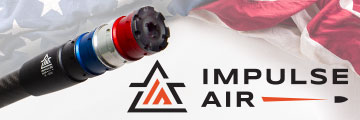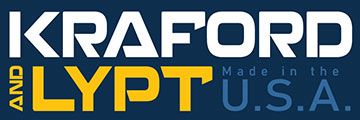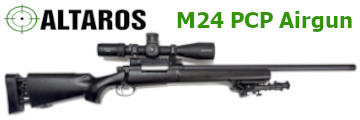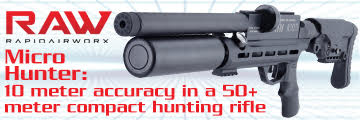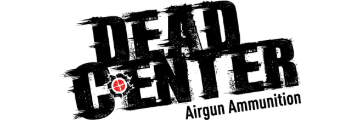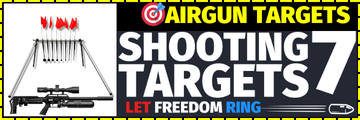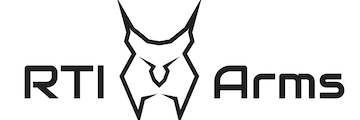Early last week I received a shipment from AOA containing the New Western Airguns Rattler in .30 caliber. Those not familiar with Western Airguns, they are not a new company and have been around for a good many years. They primarily produce Big Bores, specifically the Bushbuck that I had the privilege to use last year on one of my big game hunts. From my understanding the engineer from LCS Air Arms left the company and took his designs over to Western Airguns, these designs were for larger calibers as well as a few other exotic ideas. I have been aware of the Rattler for awhile and was to say the least extremely excited to get my hands on it as for the extreme power it was said to produce. The rifle arrived and I did the typical once over, mounted scope etc, The following day we would pack the Jeep and head into the mountains for two days where I would be able to test it out a bit.

I topped the rifle with a Hawke Sidewinder 4-16x50ffp and Eagle Vision Infinity adjustable rings along with my trusted Tactacam. My first overall once over of the gun, it's of very good build quality and a very robust rifle...the oversize shroud and moderator definitely adds to making this tough looking.

Marley and I arrived to our location by 8:00am that had recently received some rain earlier that morning. This is the monsoon season and temperature was 109 degrees by 9:30am, brutally hot and humid. My plan was to test out various ammo, do some chronograph and decibel readings and really just learn the gun as best I could. The private location I use for all my testing allows for me to get out past 300+ yards and for the most part is completely wide open terrain. I had brought some targets as well as a custom built 12"x12" steel plate with stand that I have much enjoyed using for long range plinking and practice with many of the rifles I test. I had brought a variety of both pellets and slugs to try out of the Rattler but already had a good idea of what would work.
I brought 110gr .308 High Arc Hunters that had been swaged down to .300, Polymags, 65gr NSA's, 44gr & 50gr JSB's along with a few custom NSA's to play with.
WEIGHT, SIZE, HANDLING The Rattler comes in a 9.2lbs and the length is 40" long from head to toe making it a pretty large bullpup. This is not within weight range of what I would personally enjoy carrying as once I added scope, bipod, camera it's not upwards of 10+lbs. This is a tactical design and to me the weight felt very well distributed and never gave me deterrent from wanting to shoot it offhand. Those wanting to carry this I would suggest a single point sling as it does get overbearingly heavy on long hikes. From prone or positions I use posting up with my long bipod the rifle is incredibly stable and rigid feeling. I think the lower rail with the band is well made and I say this because I felt no lateral movement that's usually compounded when using such a large bipod. The Hogue grip is a quality rubber one that provided a comfortable feel and is one of my favorite styles for field use, grips are often overlooked as part of the overall performance of a rifle. The grip is the main component to leverage the rifle up quickly to a proper shooting position and maintain good trigger control.


The Rattler in .30 has a 17 shot titanium cylinder and has 0.827" 21mm of room to accommodate what I would consider massive .30 slugs. The loading door slides up and down making it possible to load 4 projectiles before having to advance the cylinder.
AIR CAPACITY This rifle is outfitted with a 580cc bottle with a fill pressure of 250bar/ 3625psi and can be upgraded to a 700cc for those wanting more air. The regulator can be externally adjusted and was tet to roughly 140 bar, later on I do plan to make a more advanced tune where I may turn the regulator down a bit.
ACESSORY RAILS The Rattler has plenty of pic rails to add just about anything, both the top and bottom are 9" in length with the bottom having a fitted band that I think adds to some rigidity to the gun. I typically like moving my bipod forward from the bench or prone position and then prefer more of a rearward mounting when I'm out hunting, especially with the extended bipod. The Rattler has pic rails on each side as well that for my use would probably be used for either a camera or flashlight. The upper pic rail does have 20moa built in that I found to be helpful and wished more manufacturers thought to add this as a standard feature. For me it was more than enough room to comfortably mount my scope and have enough forward and back to fine tune for my eye relief. Many guns simply don't have enough room forward to mount optics correctly making it very uncomfortable to shoulder when using scopecams....this wasnt the case with the Rattler.

This rifle is equipped with a power adjustment knob located just forward of the buttstock, this I believe acts as somewhat of a restrictor and has a HUGE range of adjustment. The knurled knob has what I have counted to be 148+- clicks either direction.
Turning the knob clockwise lowers the power that through my testing on the lowest setting brought the power down to 49fpe using the 44gr JSB's......the rifle gets a friggin boatload of shots at that. On the high end of the power adjustment I was able to get the rifle to shoot the 110gr High Arc Hunters at 858fps.
(NOTE) I will be doing some more testing with this gun and want to experiment more with reg adjustments, I personally have little interest in shooting such heavy slugs. I really just wanted to see if the Rattler could achieve the advertised performance and it for sure can.
BARREL SYSTEM & SOUND This rifle is outfitted with a 27" TJ Enterprises barrel and is a 1:26 twist rate, one that I'm familiar with as it's the same as I have on my AAA EVOL. This twist rate is generally very good for both pellets and slugs and a good compromise for using both extending the versatility of this rifle.

The 1:26 is a bit slow for slugs but I was able to achieve some pretty good accuracy at 100 yards using the 65gr NSA's. As I mentioned with some more time and some more air I will be doing a more specific tune but for my first time out I was extremely impressed with the accuracy. The barrel has zero "FLOP" or flex, I checked this by grabbing it with my hand and forcing it upwards and down a few times. This is not really a test but something I feel is important to show people....WHY? A strong barrel system is important, especially in the field where the rifle will endure many normal bumps and bruises. Floppy and weak barrel systems are extremely prone to POI changes that can become a liability under demanding field use, this is my own experience.
The shroud like everything else on the gun is very robust and of large diameter going into the removable 6 5/8" moderator with aluminum monocore.
I did test the sound with a DB meter from both the high and low power, this is in no way a scientific test but can give us some sort of idea of noise level. The average backyard friendly airgun will most likely produce around 75db. On the low end this puts out 95db and on the high end 115db, this is a bit more than a .22LR would produce. Again this will depend on the environment and specific tune of the rifle. I realize many spend a good dime on a new rifle only to immediately go out and purchase an aftermarket moderator for another few hundred dollars. In this case I really can't see an aftermarket moderator being any more effective than this quality unit, in that I see some added value.
TRIGGER & SAFETY I couldn't help but to imagine the trigger to be like that of the LCS SK-19, one that people have complained of being long and spongy. This to my surprise was not like that at all, matter fact to the contrary with a short first stage that rolls into the second with a short and clean break. Very predictable and set to just under 1lb.
Moving onto the safety's, this rifle has two of them. One is located on the left side just below the action. The Rattler in .30 has Safe in the far back position, semi auto in the top and all the way forward for the full auto function. The rear safe is to lock the hammerless system in the event the rifle loses pressure that in low PSI could produce a discharge.
On the right side of the Rattler just above the trigger guard is the Safe that will lock the trigger. I do not like this location and I say this because when the rifle is off safe my index finger can touch it and move it back onto safe....it's annoying. I wish they would have gone with a switch that simply slides forward and back, this is really just my own preference. Other than that it functions as it should but it was something about it I felt enough to mention.
FULL AUTO SHOOTING I think the full auto feature is just a novelty and something I think we all need to try at least once, it has no place in my intended use of this rifle. The rifle can be "professionally" internally adjusted to advance and lower the full auto shot cycle but out of the box it will empty 17 shots in about 8 seconds to give you an idea of how fast it shoots. This is a great way to bring out a smile but it's also a way to burn through a load of ammo and air.....so essentially a novelty feature.

I did do some long range shooting out to 330 yards and just over 200 where I setup a 12"x12" custom made steel swinging target. The Rattler is a powerhouse of a rifle and really did impress me with it's performance in a fairly short package. The 24" barrel isn't that long so from a bipod the gun feels pretty maneuverable. This is one of the reasons I feel it will make a great tool for some serious coyote abatement. I had a great time shooting the 65gr NSA's as well as the 50gr JSB's out to these extended ranges.


From a full 250bar fill I was getting two full magazines of shots with the NSA 65gr before having to refill and felt as though 120+fpe was giving me pretty consistent results out to these various ranges. This gun can casually produce 140+fpe easily and at those power levels it tends to be much more enjoyable to shoot with minimal recoil. That afternoon Marley and I headed down to another location where I planned to setup camp and do a bit of hunting into the evening. Hopefully this post will help others that may have interest in this gun and I do plan to continue my work with it. Enclosed is the full video of my adventure that includes my honest opinion on this rifle for it's price point. Enjoy!

































